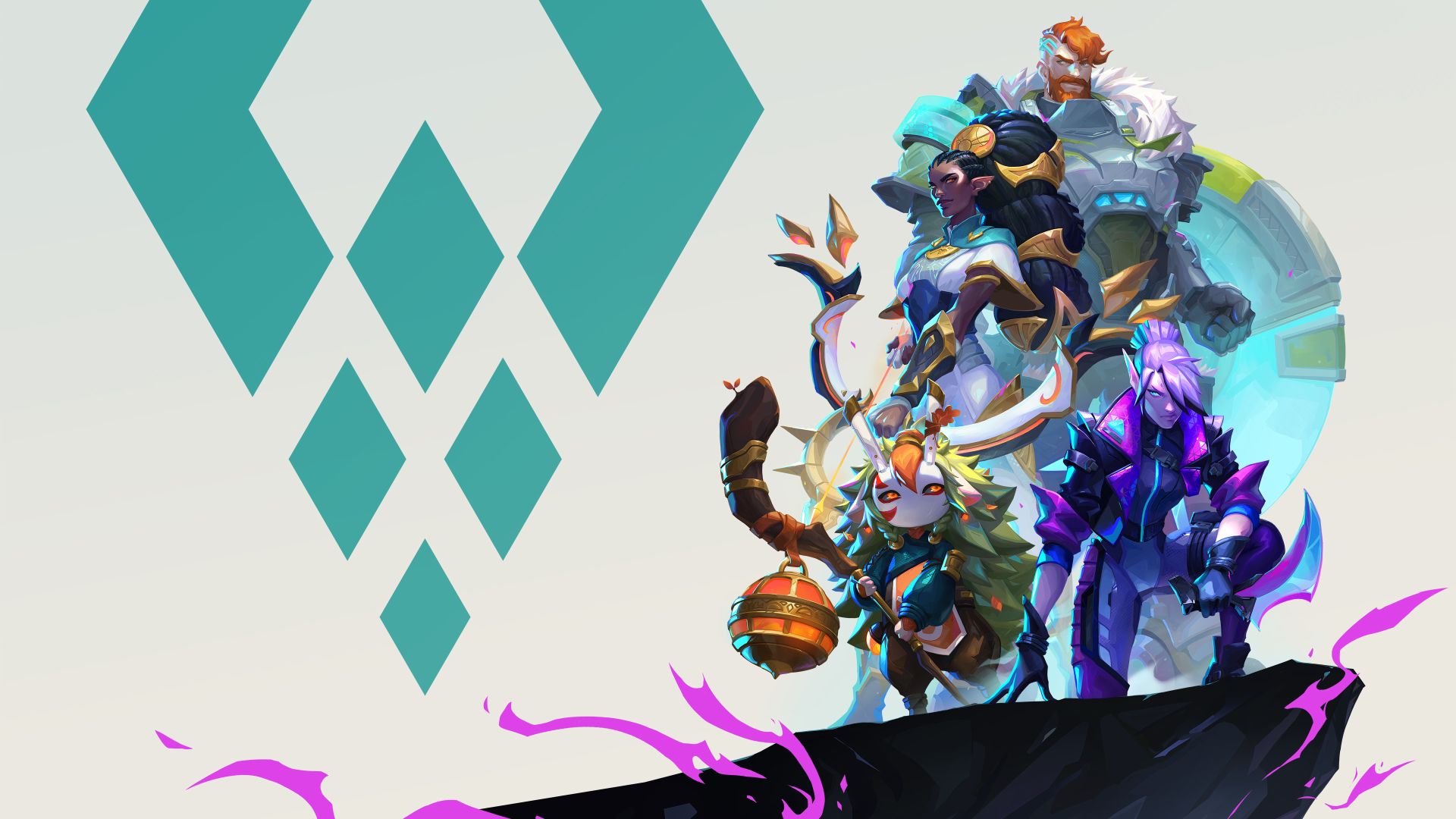
There are 16 players on this map, all of them competing for the same goal. Four teams of four heroes are ducking and weaving around a towering boss, a colossal ice troll raining chaos down upon his arena. The catch is that while every player is here at the same time, they're technically not all in the same place - and only one of these teams can walk away victorious.
Evercore Heroes is the debut title from Vela Games, a studio founded in part by two League of Legends veterans. Travis and Lisa George worked on the early days of Riot's MOBA, and are joined in this new venture by Brain Kaiser, whose narrative efforts have taken him all across the games industry. But while Travis and Lisa's history with League of Legends was primarily focused on PvP, Vela's first project is softening that competitive edge.
Evercore Heroes is still billed as "competitive PvE", but you'll never really see the players you're competing against. Your own team will battle alongside you, filling classic Tank, Support, or DPS archetypes, but at the moment, the three other teams that make up your competition appear on your screen as little more than wisps, their different colours outlining their allegiance. Each group of four plays within its own instanced version of the map, and while you'll often end up in the same place as several enemies at once, you'll never interact with them directly.
The closest comparison I can think of is the 'World First' races that consume MMO communities when new raids drop, in which every player knows that their counterpart is striving to achieve the exact same thing, in the exact same place, often at the exact same time. The end goal of each match is to be the first team to defeat the boss dwelling somewhere on the map, but doing so is a matter of speed and efficiency. Your characters grow in strength as they defeat low-level mobs, so splitting up to cover as much ground as possible is key. Wander too far, however, and you may get caught out - like the MOBAs that helped inspire it, Evercore Heroes also tasks you with defending a base, your 'Core'. Waves of enemies, sometimes empowered by the actions of other players - act as a form of restraint. If your Core is destroyed, you'll lose before you even get to see the final boss, resulting in a balancing act that's part of what makes Evercore Heroes such an interesting proposition, but might also limit its audience.
Macro Machines
In most team-based, map-based games - from Age of Empires to League of Legends, Counter-Strike and Fortnite - success relies on a mixture of masteries. Most appealing to most players is the micro-level, the moment-to-moment expressions of skill that see you land the perfect headshot or combo to beat another player in a direct contest. On the other end of the spectrum is the macro-level. Far less flashy, it's best described as 'winning the map'; what's the use in winning a firefight if someone else can sneak up behind you and claim the objective you were fighting for?
It's clear that Evercore Heroes wants players to appreciate the micro-level, but mastering its various maps seems, at this point, far more important. Efficient pathing, clearing, and cross-map movement is baked into its formula in a system that seems as much about optimisation as it does about skill. That makes for a highly specific sell - winning the map is a concept that certainly appeals to some (myself included), but it's not exactly the kind of gameplay that makes up viral video montages. Combined with combat that seems a little sluggish around those major bosses, and it looks as though Evercore Heroes is setting its sights on a specialised, heavily-invested audience rather than mass appeal. That can certainly work - the likes of Battlerite or Naraka: Bladepoint have found success by focusing on a specific aspect of a popular genre - but it's a much more risky gamble.
The macro focus is particularly interesting given the heavily-felt presence of developers from juggernauts like Fortnite and League of Legends within the Evercore Heroes team. Both games have long shone their brightest spotlights on their most skilled - rather than most smart - players. But Travis is confident that the game will find its niche, even in the shadow of those worldwide phenomenons; "We've learned that you have to make something that players want. Our guiding focus is players - everything that we've done is in service of creating an experience that players love. There's no blueprint, but from working on those types of games, we know that they bring something new to players."
Sign up to the GamesRadar+ Newsletter
Weekly digests, tales from the communities you love, and more

I'm GamesRadar's news editor, working with the team to deliver breaking news from across the industry. I started my journalistic career while getting my degree in English Literature at the University of Warwick, where I also worked as Games Editor on the student newspaper, The Boar. Since then, I've run the news sections at PCGamesN and Kotaku UK, and also regularly contributed to PC Gamer. As you might be able to tell, PC is my platform of choice, so you can regularly find me playing League of Legends or Steam's latest indie hit.


